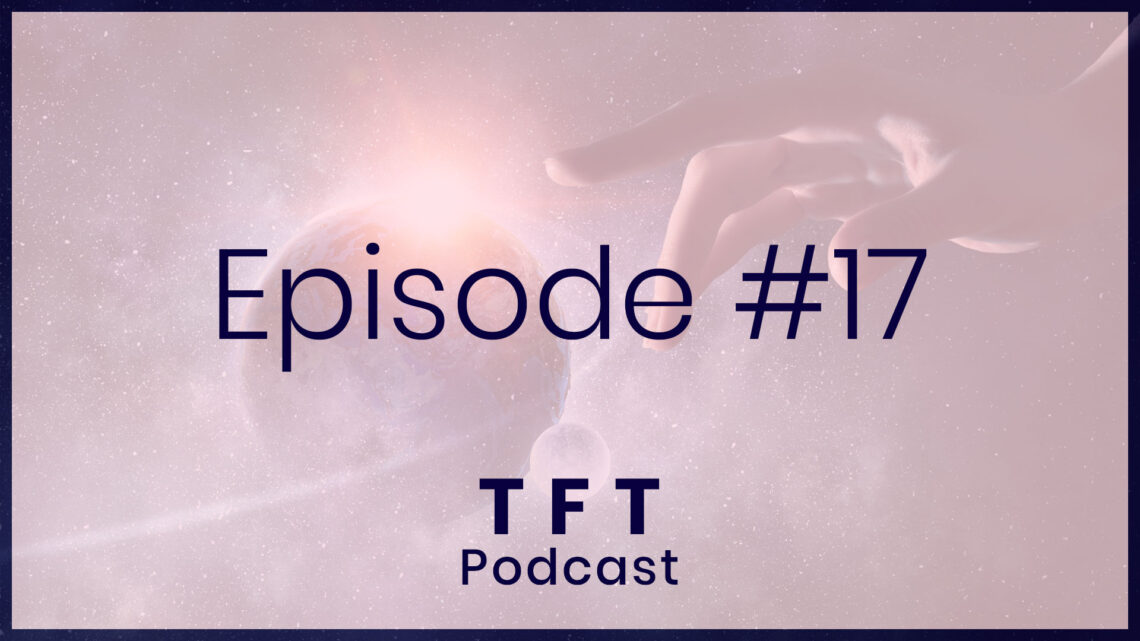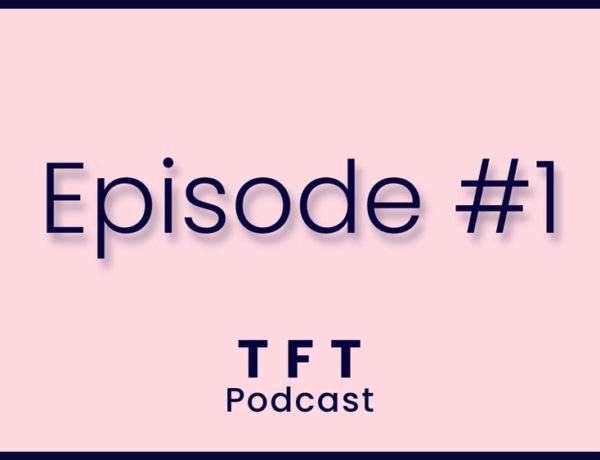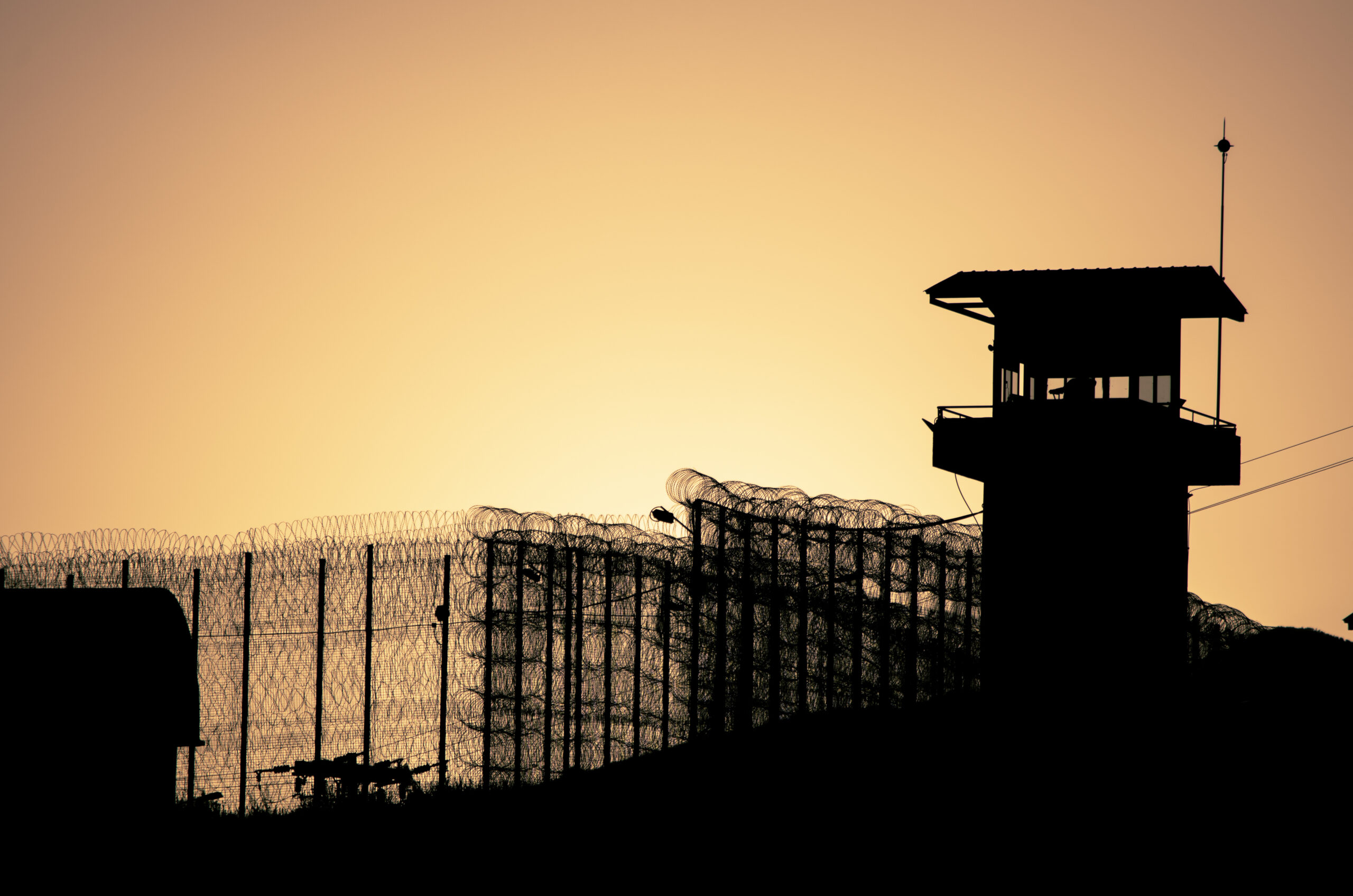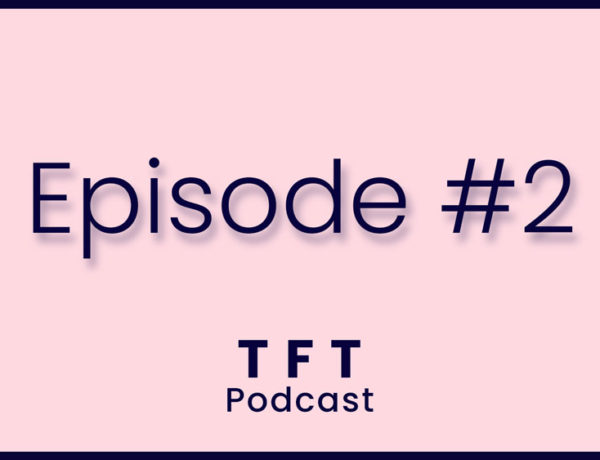This Week’s Episode
This week, Julia and Kelley share their past experiences being indoctrinated into the belief of Creationism, and the denial of any science that could not be backed up by scripture. They discuss the severe gap in science being taught in Evangelical homeschool environments and how these beliefs shaped their worldview. Kelley and Julia give an account of how they overcame the denial of science, their own mental “evolution”, and how they have been catching up on the scientific theories they were sheltered from growing up. Fact is proving to be more exciting than the fiction they were raised to believe.
Do Yourself a Favor

Go watch My Octopus Teacher on Netflix…NOW!
Wikipedia summarizes My Octopus Teacher: “takes viewers into a world few humans have ever seen. In 2010, debilitated by adrenal fatigue, Craig began free diving in a freezing underwater forest at the tip of Africa. As the icy water re-energised him, he started to film his experiences and in time, a curious young octopus captured his attention.
By visiting her den and tracking her movements everyday for months, he won the animal’s trust and they developed an unlikely relationship. As the little octopus shared the secrets of her world, Craig became first witness to the beauty and drama of a wild creature’s life and in the process, underwent an incredible mental and physical transformation.”

Go watch The Social Dilemma on Netflix!
Wikipedia describes The Social Dilemma as “a 2020 docudrama directed by Jeff Orlowski and written by Orlowski, Davis Coombe, and Vickie Curtis. Released via Netflix on September 9, 2020, the film explores the rise of social media and the damage it has caused to society, focusing on its exploitation of its users for financial gain through surveillance capitalism and data mining, how its design is meant to nurture an addiction, its use in politics, its impact on mental health (including the mental health of adolescents and rising teen suicide rates), and its role in spreading conspiracy theories and aiding groups such as flat-earthers and white supremacists.
The film features interviews with former Google design ethicist and Center for Humane Technology co-founder Tristan Harris, his fellow Center for Humane Technology co-founder Aza Raskin, Asana co-founder and Facebook‘s like button co-creator Justin Rosenstein, Harvard University professor Shoshana Zuboff, former Pinterest president Tim Kendall, AI Now director of policy research Rashida Richardson, Yonder director of research Renee DiResta, Stanford University Addiction Medicine Fellowship program director Anna Lembke, and virtual reality pioneer Jaron Lanier. The interviews are cut together with dramatizations starring actors Skyler Gisondo, Kara Hayward, and Vincent Kartheiser, which tell the story of a teenager’s social media addiction”.

Science VS. Faith
This is going to be another re-curring topic that we will title: Science VS. Faith. Julia and Kelley want to share with you what our personal relationship has been with science and how we have, no pun intended, EVOLVED. Today’s installment will be focused around what we were initially taught, how it formed our worldview, and our current thoughts on this mode of thinking by the religious-right and the homeschooling movement we were raised within.
Our Past = Answers in Genesis
We were raised to deny any science that did not fit into a strict Biblical narrative. We were fed a watered down and creation-based version of science. Our Mom donated to fund the building of the Creation Museum in OH. We went to all of the conferences in our area put on by Answers in Genesis, and I was even a brief penpal with Ken Ham one of the founders of AIG.

According to The Creation Museum about page, the museum “shows why God´s infallible Word, rather than man´s faulty assumptions, is the place to begin if we want to make sense of our world. This 75,000-square-foot facility allows families to experience earth history as God has revealed it in the Bible. Nearly 150 exhibits feature fearsome animatronic dinosaurs, talking heroes of the faith, and professional displays that honor God´s Word.
The museum also boasts a fun-filled, 200-seat special effects theater, a state-of-the-art planetarium, a petting zoo, nature trails, and lots more. At the heart of the Creation Museum is a chronological retelling of biblical history in seven parts called the Seven C´s. Guests step back in time, beginning with Creation, and fast-forward to Christ´s return.
Along the way, they see how God´s Word provides the big-picture answers for our most difficult questions, whether about science, the Bible, or our personal relationship with God. The Creation Museum is a Christian evangelistic outreach of Answers in Genesis, as is our sister attraction, the Ark Encounter. Located 40 miles from the museum in Williamstown, Kentucky, the Ark Encounter brings to life the Ark of Noah’s day and equips visitors to understand the reality of the events recorded in the book of Genesis”.
Julia went with her Mom and sister to the museum and wasn’t impressed. She was, however, blown away at how many millions of dollars went into each and every part of the museum and exhibits that have no factual basis to stand upon.

Arguments by Religion-Based Science Believers
When discussing science in religious sectors of homeschooling (which has tended to be the vast majority of homeschoolers), even today, sound like this article Three Types of Bias in Secular Science Textbooks, by Christy Hemphill on BioLogos, a blog for religious homeschoolers:
“People on the Homeschool Forum often ask me what science textbooks I recommend. There are some great options by Christian publishers in some subjects, but many are plagued by weak or outdated science and explicitly promote young-earth or intelligent design perspectives. In general, books by secular publishers have a lot of advantages.
The good ones are updated every couple of years so they are reasonably current with respect to science and pedagogical best practices. Also, at least theoretically, they are supposed to be silent on matters of faith, so Christian teachers and parents have more freedom to contextualize the science with Christian teachings. Yet not all secular science textbooks are created equal, and some can be pretty vocal about promoting an anti-faith perspective. Because of this fact, some parents and Christian educators express concern when they are faced with the prospect of using a secular textbook for a science course.
They worry that an atheistic bias in these textbooks could harm students whose Christian worldview is still developing”.
Christy Hemphill
Here we consider three common types of bias that sometimes crop up in secular science textbooks and some ideas for how to help students recognize them and respond from a Christian perspective. We follow with a couple of examples teachers could discuss with their students.
Bias #1: Science justifies scientism
One of the foundations of modern scientific inquiry is methodological naturalism, the idea that science studies the natural world, so supernatural causes are not considered as possible scientific explanations. This should not be confused with metaphysical naturalism (also called scientism, ontological naturalism, philosophical naturalism, or scientific materialism), a worldview that claims the natural world is all there is and there are no supernatural facets of reality. Some Christians mistakenly think that because the practice of science today usually involves methodological naturalism, all scientists are promoting metaphysical naturalism.
Science is limited to natural explanations and therefore does not have the tools for determining the existence or non-existence of supernatural realities. But as Christians, we believe many supernatural truth claims on the basis of Scripture, church tradition, and personal experience. Science and theology both generate knowledge and are complementary ways of finding out truth about reality. Recognizing this means we don’t have to see the natural explanations science offers as diminishing or competing with the supernatural explanations offered by our faith; the explanations complement one another to form a more complete picture of reality.
To combat a bias toward metaphysical naturalism, help students discern the difference between ruling out supernatural explanations in scientific study and ruling out the possibility of supernatural explanations in all areas of life. Point out when some scientists overstep the bounds and imply that science has proven they are correct in holding to metaphysical naturalism as a worldview.
Bias #2: Science and faith are at war
Some people promote the idea that science and Christian faith are inherently incompatible and at war with one another. If textbook writers subscribe to this view, or even if they are simply ignorant of the beliefs of religious people, they may present religion or people of faith as foils or enemies of science and scientists. They may imply that there is only one way to interpret certain passages of the Bible, and that people must choose between what science says about the world and what they claim the Bible says about the world. They may present history as a battle between religious thinking and scientific thinking and claim scientific thinking eventually wins out and replaces religious thinking. Religious thinking may be presented as superstition, outdated tradition, or a way for corrupt religious authorities to maintain control over ignorant people. Scientific thinking on the other hand, may be portrayed as a superior source of knowledge since it is based on reason, empirical observations, proof, and evidence.
When you see that faith and science are being treated as opposing forces, point out that this is not the only way to see the relationship between faith and science. Give students opportunities to explore different ways in which science and faith can relate to one another. Help them see that textbook writers who mischaracterize the beliefs of Christians may be ignorant about religion, but that doesn’t mean we can or should discount what they say about science. This is a great moment for talking about the need for reading with discernment.
Bias #3: Religion is an obstacle to scientific progress
Sometimes secular textbooks seem to go out of their way to characterize religious beliefs, sacred texts, and Christian institutions as obstacles to scientific thinking. They may also ignore all the positive contributions to scientific progress that Christians have made and continue to make. There have been unfortunate occasions when religious people or authorities have resisted scientific advances. But if we fail to balance those stories with the stories of the many faithful Christian scientists who have pursued their investigations specifically because they were motivated by their faith, then we don’t paint a balanced picture.
The history of science is full of many devoted Christians (and people from other faith traditions) who have seen no conflict between science and their faith, and in fact have found them to be mutually edifying. Combat the idea that Christians stand in the way of progress by highlighting the devout faith of important scientists of the past like Boyle, Lemaître, or Pasteur. Have students regularly read about believing scientists making meaningful contributions to their fields today. If you see news or pop culture references where scientists are stereotypically described as being atheists, talk about whether that is a fair portrayal of all scientists.
With these strategies for addressing any bias you might encounter, you can confidently pick up a science textbook and focus your worries on the hard work of teaching the material”.
Past and Present: How We Were Raised to Deny and View Climate Change
In an article for The Conversation, titled Faith and Politics Mix to Drive Evangelical Christians’ Climate Change Denial, Adrian Bardon writes that “U.S. Christians, especially evangelical Christians, identify as environmentalists at very low rates compared to the general population. According to a Pew Research Center poll from May 2020, while 62% of religiously unaffiliated U.S. adults agree that the Earth is warming primarily due to human action, only 35% of U.S. Protestants do – including just 24% of white evangelical Protestants.
Politically powerful Christian interest groups publicly dispute the climate science consensus. A coalition of major evangelical groups, including Focus on the Family and the Family Research Council, launched a movement opposing what they describe as “the false worldview” of environmentalism, which supposedly is “striving to put America, and the world, under its destructive control.” Studies show that belief in miracles and an afterlife is associated with lower estimates of the risks posed by climate change.
This raises the question: Does religion itself predispose people against climate science? Surveys of people around the world, as well as social science research on denial, suggest the answer to this question is more nuanced than a simple yes or no.
Where religion and science can’t be reconciled
An automatic resistance to science would seem to make sense for some religious believers. There are several ways that core aspects of modern scientific knowledge tend to undermine literalist or fundamentalist readings of religious texts. In particular, evolution by natural selection, the central concept underlying the biological sciences, is utterly incompatible with most creationist faith traditions.
Religion offers the comforts of a measure of control and reassurance via an omnipotent deity that can be placated by ritual. In contrast, the scientist’s naturalistic universe offers neither an intrinsic moral order nor a final reward, which can be unsettling for the devout and in conflict with their faith. Because of these mismatches, one might expect those with a strong religious affiliation to be reflexively suspicious of scientific findings.
Indeed, in a large international survey, 64% of those who described religion as an “important part” of their life said they would side with their religious teachings in a disagreement between science and their religion. Other studies find that, for the faithful, religion and science are at odds as ultimate explanations for natural phenomena.
Climate science denial may stem more from politics than religion
North America is the only high-income region where people who follow a religion are substantially more likely to say they favor their religious teachings over science when disagreements arise. This finding is driven mainly by politically conservative U.S. religious denominations – including conservative Catholics.
A major new study looking at data from 60 countries showed that, while religiosity in the U.S. is correlated with more negative attitudes about science, you don’t see this kind of association in many other countries. Elsewhere, religiosity is sometimes even correlated with disproportionately positive attitudes about science.
But the available evidence cuts both ways. A landmark study from the 1980s suggested that fundamentalist religious traditions are associated with a commitment to human dominion over nature, and that this attitude may explain anti-environmentalist positions.
Even after controlling for political ideology, those committed to an “end-times theology” – like U.S. evangelicals – still show a greater tendency to oppose the scientific consensus on environmental issues.
Perhaps some specific theologies bias the believer against the idea that human beings could be responsible for the end of humanity. This bias could show up as an automatic rejection of environmental science.
We are left with something of a “chicken and egg” problem: Do certain religious communities adopt politically conservative positions on climate change because of their religious tradition? Or do people adopt a religious tradition that stresses human dominion over nature because they were raised in a politically conservative community? The direction of causation here may be difficult to resolve.
It wouldn’t be surprising to find either religious dogmatism or political conservatism linked with anti-science attitudes – each tends to favor the status quo. Fundamentalist religious traditions are defined by their fixed doctrines. Political conservatives by definition favor the preservation of the traditional social and economic order”.

What Happens When Christians Believe Climate Change and Want to Help?
In the article, An Evangelical Backlash Against Environmentalism by John Collins Rudolf, for the New York Times, the recent attempt by Christians to embrace the urgency of Climate Change called the Creation Care Cause is discussed.
Rudolf writes that “Over the last decade, many evangelical Christians have embraced the doctrine called creation care, which uses a scriptural basis to promote good stewardship of the earth and its resources. For these believers, problems like climate change threaten to greatly intensify third-world poverty, making actions to reduce global warming emissions an urgent Christian issue.
“We are convinced that evangelicals must engage this issue without any further lingering over the basic reality of the problem or humanity’s responsibility to address it,” hundreds of evangelical leaders declared in a 2006 statement on climate change.
But while a growing number of local and national nonprofit groups have formed to spread the “creation care” message, an increasingly fierce backlash against the mingling of Christianity and environmentalism has emerged from other quarters of the evangelical movement.
Leading the Christian counterargument on the environment is the Cornwall Alliance, an evangelical nonprofit that strenuously opposes action on climate change and describes the environmental movement as a “false religion” that Christians must avoid at all costs.
This December, the group released a 12-part educational video series, “Resisting the Green Dragon,” warning Christians that radical environmentalism “is striving to put America, and the world, under its destructive control.”
This December, the group released a 12-part educational video series, “Resisting the Green Dragon,” warning Christians that radical environmentalism “is striving to put America, and the world, under its destructive control.”
The video series includes appearances by Tony Perkins, president of the Family Research Council; Tom Minnery, senior vice president of Focus on the Family; and other conservative evangelical Christian leaders.
The series takes direct aim at the “creation care” movement, citing a “well-funded effort to infiltrate churches” by groups with beliefs that are “deadly to the gospel of Jesus Christ.”
“Some of what goes under the name of ‘creation care,’ even in evangelical circles, is infected by the false worldview and theology of secular and pagan religious environmentalism,” Calvin Beisner, founder of the Cornwall Alliance, said in a statement accompanying the videos.
In an e-mailed response to questions, Mr. Beisner said that “creation care” environmentalists and evangelical politicians, like Senator Sam Brownback of Kansas and Mike Huckabee, the former presidential candidate and Arkansas governor, who have advocated for action on climate change, probably did not understand the science behind the positions they were advancing, and were parroting alarmist views propagated by radical environmental groups and the mainstream media.
Mr. Beisner wrote that he had so far not met a single evangelical “who has been able to rehearse the most basic arguments pro and con regarding the most important physical issue” in the global warming debate, “which is climate sensitivity.”
He added, “That suggests to me that most are embracing conclusions without understanding the arguments.”
Mr. Beisner, a former professor of theology and a ruling elder in the Orthodox Presbyterian Church, argued that the science is still unsettled on whether greenhouse gases are warming the climate and that projections of dangerous human-driven warming in the future are flawed and unreliable. But an “Evangelical Declaration on Global Warming” on the Cornwall Alliance’s Web site urges all evangelicals to accept that recent global warming is natural and that mankind is incapable of altering the climate.
“We believe Earth and its ecosystems — created by God’s intelligent design and infinite power and sustained by His faithful providence — are robust, resilient, self-regulating, and self-correcting, admirably suited for human flourishing, and displaying His glory,” the group’s declaration reads. “Earth’s climate system is no exception. Recent global warming is one of many natural cycles of warming and cooling in geologic history.”

Our Current View of Science VS Faith
Kelley and Julia referenced the article, War Between Science and Religion by Jerry Coyne for The Conversation, as describing their current view on how they believe science and religion are not compatible.
Coyne writes that “As the West becomes more and more secular, and the discoveries of evolutionary biology and cosmology shrink the boundaries of faith, the claims that science and religion are compatible grow louder. If you’re a believer who doesn’t want to seem anti-science, what can you do? You must argue that your faith – or any faith – is perfectly compatible with science.
And so one sees claim after claim from believers, religious scientists, prestigious science organizations and even atheists asserting not only that science and religion are compatible, but also that they can actually help each other. This claim is called “accommodationism.”
But I argue that this is misguided: that science and religion are not only in conflict – even at “war” – but also represent incompatible ways of viewing the world.
My argument runs like this. I’ll construe “science” as the set of tools we use to find truth about the universe, with the understanding that these truths are provisional rather than absolute. These tools include observing nature, framing and testing hypotheses, trying your hardest to prove that your hypothesis is wrong to test your confidence that it’s right, doing experiments and above all replicating your and others’ results to increase confidence in your inference.
And I’ll define religion as does philosopher Daniel Dennett: “Social systems whose participants avow belief in a supernatural agent or agents whose approval is to be sought.” Of course many religions don’t fit that definition, but the ones whose compatibility with science is touted most often – the Abrahamic faiths of Judaism, Christianity and Islam – fill the bill.
And yet, without supporting evidence, Americans believe a number of religious claims: 74 percent of us believe in God, 68 percent in the divinity of Jesus, 68 percent in Heaven, 57 percent in the virgin birth, and 58 percent in the Devil and Hell. Why do they think these are true? Faith.
But different religions make different – and often conflicting – claims, and there’s no way to judge which claims are right. There are over 4,000 religions on this planet, and their “truths” are quite different. (Muslims and Jews, for instance, absolutely reject the Christian belief that Jesus was the son of God.) Indeed, new sects often arise when some believers reject what others see as true. Lutherans split over the truth of evolution, while Unitarians rejected other Protestants’ belief that Jesus was part of God.
And while science has had success after success in understanding the universe, the “method” of using faith has led to no proof of the divine. How many gods are there? What are their natures and moral creeds? Is there an afterlife? Why is there moral and physical evil? There is no one answer to any of these questions. All is mystery, for all rests on faith.
So how do the faithful reconcile science and religion? Often they point to the existence of religious scientists, like NIH Director Francis Collins, or to the many religious people who accept science. But I’d argue that this is compartmentalization, not compatibility, for how can you reject the divine in your laboratory but accept that the wine you sip on Sunday is the blood of Jesus?”
Join the Debate
Kelley and Julia know this is a hot-button issue and realize that some will not appreciate what this episode has to say. Regardless, they would love to open up a dialogue with any listeners who would like to share their thoughts and opinions on this topic, regardless of what side they land on in the debate. Please comment below or send an email with any thoughts or concerns.




2 Comments
Japanese Pumpkin
September 19, 2020 at 6:59 pmHi. I’m from Japan and I started to listen to the Family Ties Podcast for English study.
I came across your podcast while searching for “John Oliver” on Podcasts. Your podcasts are interesting. Besides, I love your pronunciation very much. I want to pronounce like you, so I listen to you every day again and again.
By the way, Episode 17 was very interesting. I am a religious person, and I have found my own way to reconcile religion and science.
I think both are different in purpose and methodology.
You know that there are different religious denominations in Christianity. Some believe in the Bible literally and some interpret the Bible metaphorical way.
Jesus said in the Bible, “Be on your guard against the yeast of the Pharisees and Sadducees.”(Matthew 16)
The disciples said, “It is because we didn’t bring any bread.”
Jesus replied, ” How is it you don’t understand that I was not talking to you about bread? But be on your guard against the yeast of the Pharisees and Sadducees.”
Then they understood that he was not telling them to guard against the yeast used in bread, but against the teaching of the Pharisees and Sadducees.
In another place, Jesus said, “Whoever eats my flesh and drinks my blood remains in me, (John 6)” then many of his disciples said, “This is a hard teaching. Who can accept it?”
And many of them no longer followed Jesus.
Of course, Jesus didn’t mean literally. He said, “The words I have spoken to you—they are full of the Spirit and life.” He also said, ” I am the bread of Life.”
The bible is full of difficult metaphors. The meaning will be revealed to you only when you read it with right purpose, I believe.
So, the purpose of science is to find the facts of the world, and the purpose of religion is to live to be a good person.
I do believe in the virginity of Mary, sorry, but it is not the center of my faith. I can do without it very well.
I mean, the most important part is “love one another, as I have loved you”.
“Anyone who does not love does not know God, because God is love.” the Bible said.
I believe that the most scientific people are those who don’t deny something which has not been proven.
The methodology of science is to prove. The methodology of religion is to select. To select how you want to live, what kind of person you want to be, and thus to select the religion which matches best your wish.
I was born in a Christian family, which gave me a lot of conflicts. I had a fear of the hell and I didn’t want to be a good person just because I want to go to the heaven. I also didn’t want to look down on non-Christian friends who were much better than me. I once discarded my belief to be free. Then I thought and thought, and finally I have chosen to be a Christian. I have no fear now.
I don’t tell my children to go to church. They should choose for their own.
I’m looking forward to listening to your new episode.
Kelley Richey
September 24, 2020 at 12:49 pmThank you so much for sharing your story of faith and science reconciliation! I love how you speak about how living “to be a good person” is the purpose of religion. I love how your journey brought you back to faith and Christianity. I think all that you mention here is very thought-provoking and inspirational. Thank you again for listening and sharing! We hope to hear more of your thoughts and opinions going forward!